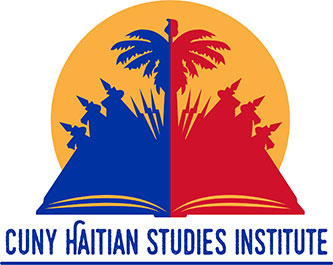Haitian Studies Institute Receives $1 Million From New York City Council
Aug. 27, 2021

Haitian Studies Institute
As the Haitian diaspora deals with twin calamities from the recent earthquake and the assassination of its president, the funding brings resources to help address a wide range of issues.
It’s been good news and bad news for the CUNY Haitian Studies Institute (HSI) at Brooklyn College and its new interim director, Marie Lily Cerat. At a time when she is dealing with the fallout from multiple catastrophes on the island nation—including the recent 7.2 magnitude earthquake and the assassination of its president—she is also working to pull together initiatives that she hopes will help lead to a brighter future for her native country, thanks to $1 million in funding the institute recently received from the New York City Council.
“This will allow us to bring in more of the resources we need to address so many problems right now,” says Cerat, who has taught courses at the college for years as an adjunct in the Africana Studies and Modern Languages and Literatures departments. “We can bring in a team to help advance the institute’s mission and to make various activities a reality.”
Earlier this summer, the council allocated $4.5 million to CUNY research institutes to support scholarship, policy development, evaluation, and archival efforts, designating $1 million for the HSI—in addition to funding for similar institutes on Mexican, Puerto Rican, and Dominican studies at Lehman, Hunter, and City colleges. “The show of equity is very powerful coming from the City Council,” says Cerat.
“We are deeply appreciative of this level of support from the City Council,” says Ken Gould, dean of the School of Humanities and Social Sciences. “This influx of resources will permit the CUNY Haitian Studies Institute to engage in the social research and cultural programming necessary to effectively serve our diasporic community and to achieve the global academic stature and relevance to which the HSI aspires.”
Cerat says the money, which doubles the budget of the five-year-old institute, will help support several initiatives, including a digital archive of its collections; a college and career readiness conference for high school students; a civic engagement and leadership development program for Haitian youth; a Haitian Creole modern language curriculum for industry that will include a massive Creole dictionary project; and a number of conferences that will bring together community leaders and scholars on Haiti. Cerat says she will also hire a grant writer and a couple of assistants.
She is particularly excited about the projects that will help shape a new generation of Haitian Americans who can address many of the issues the diaspora is facing.
“To be able to invest in the youth is extremely important to the HSI,” says Cerat, who has been an active community organizer in the New York Haitian community for nearly 30 years. “We need young people who see themselves as replacements for the current community and political leaders. This is a huge need in the Haitian community because we have so many problems we are tackling right now.”
For example, she says that Haiti desperately needs to design and implement a comprehensive plan to mitigate the disastrous impacts of natural phenomena, like the recent earthquake.
“When things like this happen, we see mobilizing the community as part of our job,” she says, pointing out that the institute has been organizing volunteer translators and coordinating with elected officials and community-based organizations in response to the earthquake. “But we would also like to help shape leaders who can rebuild the country so that Haiti is better prepared for events like this.”






